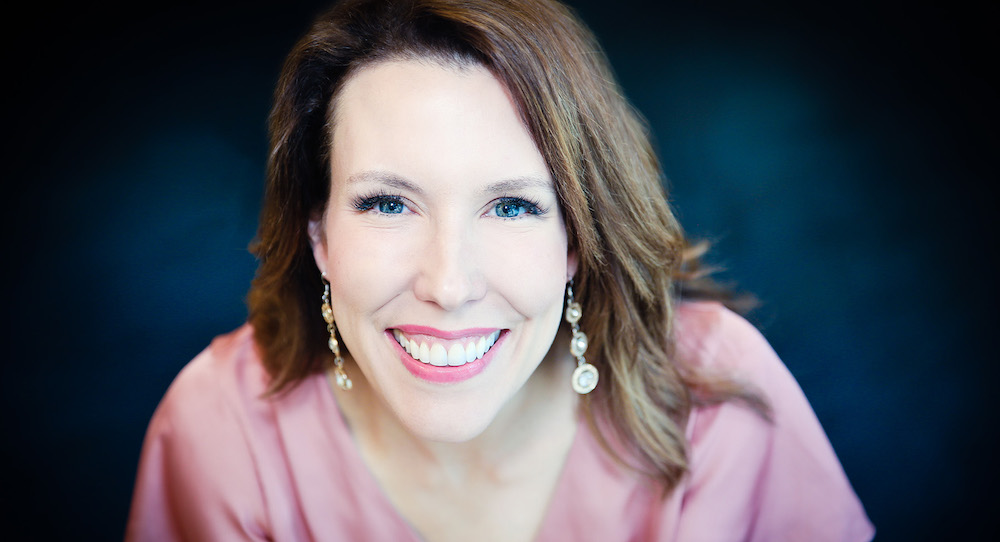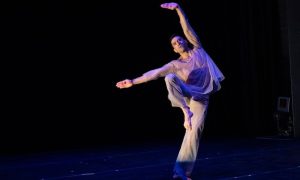Here’s how and why to say “no”, because learning this is powerful and could change your life!
You might think it odd that when beginning to consider the power of saying “no”, Dance Informa turned to the author of the bestselling book, One Small Yes: Small Decisions that Lead to Big Results –Misty Lown. However, Lown herself admits that she’s an expert on the subject, going so far as to say her superpower might actually be saying “no”.
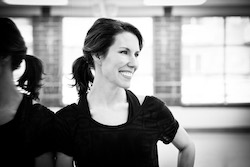
Misty Lown. Photo courtesy of More Than Just Great Dancing.
Misty Lown is a serial entrepreneur and popular speaker based in her hometown of La Crosse, Wisconsin. She founded her first business, a dance school known as Misty’s Dance Unlimited, at just 21 and recently celebrated the Grand Opening of its new International Performing Arts Center.
The founder of several other companies, including More Than Just Great Dancing and A Chance To Dance Foundation, Lown also finds time to be the managing partner of EduCare, LLC and Lown Family Enterprises and a general partner in three real estate investment partnerships. Did we mention she does all this while being a wife and a mom to five kids?
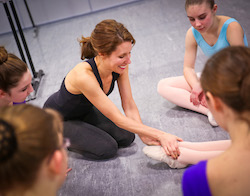
To efficiently manage all that comes her way, Lown has had to learn how to say “no” when it’s important, something many people struggle with. Studio owners, dance teachers and other dance professionals stressed out and feeling overwhelmed can probably identify with Lown, who shares that saying “no” has never come naturally to her.
“I’m a people pleaser and a go-getter by nature, and that can get me in a lot of ‘calendar trouble’,” Lown admits. “I’ve had to learn (often the hard way) that every ‘yes’ is literally a ‘no’ to something else. ‘Yes’ to teaching an extra night at the studio is ‘no’ to dinner with my family that night…for a year. ‘Yes’ to joining the PTO is a ‘no’ to working on something for my business or family during that time.”
She continues, “For most of us, it’s not a matter of choosing between a good thing and a bad thing to do with our time. It’s about choosing between a good thing and a great thing to do with our time. And it probably goes without saying, but these decisions on time change over time. The very best way to spend my time looked different when I had five kids under the age of eight than it does now with one heading off to college in another year.”
For studio owners or teachers looking for a tool to help set clear priorities, Lown recommends asking yourself these questions:
#1. What is the highest, best use of my time right now? “Sometimes that’s staying up late to do payroll,” Lown says. “Sometimes it’s playing Legos with your own kids.”
#2. Will this matter next month? Will this matter next year?
#3. Does saying “yes” to this request bring me closer to the things and people I value, or make it harder to keep those things in first place?
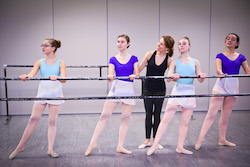
If you haven’t set down clear priorities and goals, do it and check back in every month or so to make sure you’re on track. It’s absolutely vital to evaluate your choices on a regular basis for reflection.
As new opportunities arise, it’s crucial to weigh them with discernment. Lown has a few filters through which she evaluates all requests.
“It doesn’t matter if it’s a business decision or a family decision, I want to know what the high level ROI (return on investment) is and what the high level cost is. Both sides have to make sense,” she explains. “Let’s say I have a business opportunity to open a second location. The enrollment could be amazing (great ROI), but the administrative work and travel could be overwhelming, making the cost to my family too high. Then it’s a no-go. But, if I can step into the opportunity and not overwhelm the family, or it only requires a lot of my time for a short time, then I’ll take a deeper look at it.”

But let’s be honest, it’s easier said than done to say “no”, and sometimes the process can be touch and go. Sometimes you say “yes” to something that sounded good, but later you realize it wasn’t actually the best choice, or something you could reasonably achieve. Lown has been there and has used these experiences as an educational stepping-stone.
“I’ve made several commitments over the years that I’ve regretted shortly after saying ‘yes’,” she reflects. “Let me pause here and clarify that I usually haven’t regretted the actual opportunity, but I’ve regretted the time required. I think this is fairly common for entrepreneurs – we fall more in love with the idea than the actual doing. This last year, I invested a small amount of money to help other local entrepreneurs start their business. I also stepped up as an advisor. I believed in the project (and still do), but a when my dad spent over a month in the hospital, I had to clear my calendar to be there with him, and this was one of the first things to go. It was an awesome project, just not a ‘right now’ project.”
So, how do you actually say “no” in a way that’s respectful and doesn’t diminish the potential for other future opportunities? Whether it’s a professional opportunity, or a request from a student or a friend, it’s hard to let people down. Lown has mastered the “I would love to but can’t” response.
“Recently, I turned down a speaking opportunity, and the person I turned down was so impressed that he wrote a blog post about the rejection!” Lown shares. “Here was my script: ‘Thank you so much for thinking of me! I would love to help, but I’ve got my nose to the grindstone on a couple of projects right now, and I need to stay in my lane. If you can tell me more about what you are looking for in a speaker, I would be happy to make a few referrals.’”
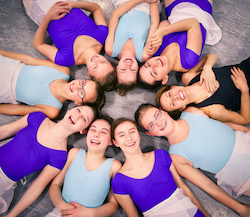
What Lown did right here is relay her gratefulness, her desire to participate and her limitations keeping her from doing so, and then she offered to make a referral. Notice she didn’t apologize for not being able to, she just owned that it’s not best for her.
Big picture: If we don’t learn to say “no” when it’s necessary, we might be at risk for missing our best down the road.
“This might not apply to everyone, but this is the biggest example for me, and my catalyst for learning to be better at saying ‘no’: I used to teach every day of the week, but as you know, I have five kids. There came a point when I realized I was in danger of helping to raise other people’s children at the expense of raising my own,” Lown says. “That started a slow withdrawal from the classroom so I could be with my kids at night. I do miss teaching, but I can always go back and teach. I’ll never get a second chance to raise my kids.”
As author Lysa TerKeurst summarized in her book, The Best Yes, whenever you say “yes” to something, there is less of you for something else. So, is there something you need to say “no” to? If so, what are you waiting for?
By Chelsea Thomas of Dance Informa.


